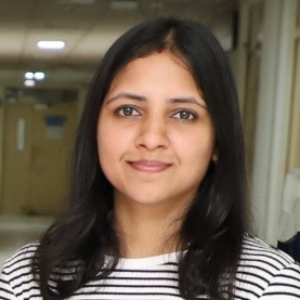Title : Sustainable recycling of valuable materials from lithium-ion battery waste via hydrometallurgical process
Abstract:
The rapid growth in lithium-ion batteries (LIBs) demand for various emerging applications, such as electric vehicles and energy storage systems, will result in waste and disposal problems in the next few years as these batteries reach end-of-life (EoL). The spent LIBs also include 5−20 wt.% cobalt (Co), 1−7 wt.% lithium (Li), 5−15 wt.% nickel (Ni) and 10-15 wt.% manganese (Mn), the composition varying slightly with different manufacturers. Co is considered a rare and strategic metal as it is relatively expensive and the natural resources are primarily limited to the Democratic Republic of the Congo and Zambia. There is a unique opportunity to utilize these EoL batteries as a secondary source to recover this valuable metal. Over the years, various recycling processes, including pyrometallurgy, hydrometallurgy, and bioleaching, have been developed to effectively recover metals from spent batteries. The hydrometallurgy method has been considered as a facile, safe, and efficient process to extract and recover valuable metals from spent LIBs. However, conventional inorganic acids (HCl, H2SO4 and HNO3) as leaching reagents are not considered environment-friendly. The current focus is to use greener solvents for metal recovery to reduce secondary pollution and negative impact on the environment.
Deep eutectic solvents (DESs) have emerged as green solvents for metal recovery from LIBs waste material. In this context, a naturally occurring organic compound known for its exceptional leaching efficiency has been used as a component of DES to assist the leaching process.
The present study will, therefore, focus on developing a closed-loop recycling process for the recovery of critically-rare metals from LIBs waste using a green solvent. The research will provide a comparative study for Co metal extraction from spent LIBs using DES and conventional acids. The effect of various operating parameters such as temperature, pH, liquid-solid ratio, and reaction time will be optimized by performing the experiments. An insight into the kinetic modelling of the DES-assisted extraction process will also be provided. Various physico-chemical characterization techniques such as XPS, XRD, and UV-Vis spectroscopy will be used to investigate the plausible mechanism for the extraction process.
Audience Take Away
- This will help the audience to understand the necessity for the recycling of spent or discarded lithium-ion battery. Audience will get insight into the current practices of handling the battery waste and the current challenges associated with these methods.
- Yes, it will provide a sustainable solution for lithium-ion battery waste recycling problem which can be implemented at industrial scale.
- Usually during the recycling of lithium-ion battery waste, only 60-80% of lithium is recovered due to losses at various process steps. Whereas, here we have proposed an efficient way for recycling the battery waste utilizing the selectivity property of green solvent thus limiting the losses of Li during the recovery process thereby, increasing the overall recovery efficiency of Li.



